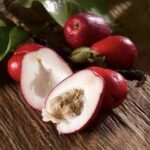





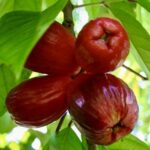

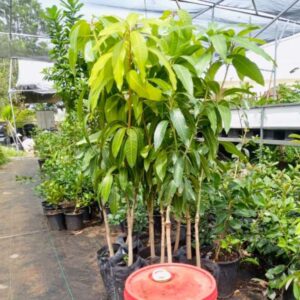
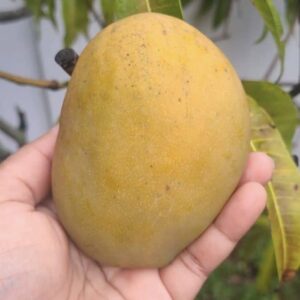
Red Malay apple (Syzygium malaccense ) tropical fruit tree 12″- 24″
$75.00 Original price was: $75.00.$39.99Current price is: $39.99.
The Malay Apple (Syzygium malaccense), also known as the Mountain Apple, Otaheite Apple, or Rose Apple, is a tropical fruit tree prized for its beautiful, glossy red fruit, ornamental appeal, and refreshing, mildly sweet flavor. Native to Southeast Asia and widely cultivated in tropical regions, this fast-growing tree is a favorite in home gardens, orchards, and landscapes due to its lush foliage, attractive flowers, and delicious fruit.
The Malay Apple tree is a medium to large evergreen tree that can grow between 30 to 60 feet tall, with a dense, spreading canopy that provides ample shade. Its dark green, glossy leaves are elongated and leathery, adding to its tropical beauty. The tree produces striking pink to red flowers with numerous stamens, creating a fluffy, showy display. These flowers develop into large, bell-shaped fruit that ranges in color from red to deep purple, with a smooth, waxy skin.
The fruit of the Malay Apple is typically 3 to 5 inches long, with crisp, juicy white flesh that has a mildly sweet, refreshing flavor. It contains a single large seed in the center. The taste is often compared to a mix of pear and rose water, making it a delightful snack when eaten fresh. The fruit is commonly enjoyed raw, but it can also be used in juices, jams, desserts, and fruit salads.
The Malay Apple tree thrives in warm, tropical climates and is best suited for USDA hardiness zones 10 to 12. It grows best in full sun, requiring at least 6 to 8 hours of sunlight daily for optimal fruit production. The tree prefers well-draining soil, such as sandy or loamy soil, with a slightly acidic to neutral pH. It adapts well to humid and coastal environments, tolerating high moisture levels.
Young trees require regular watering to establish a strong root system, while mature trees are relatively drought-tolerant but benefit from deep watering during dry periods, especially when flowering and fruiting. Fertilizing every two to three months during the growing season with a balanced fertilizer supports healthy growth and abundant fruit production.
The Malay Apple tree is easy to maintain, requiring only occasional pruning to shape the tree, improve airflow, and encourage strong fruiting. The tree’s natural beauty makes it a wonderful shade tree, windbreak, or ornamental specimen in home gardens and landscapes.
The harvest season varies depending on the region, but Malay apples typically ripen in late spring or summer. The fruit is ready to be picked when it reaches its full color and slightly softens. Harvesting is done by hand to avoid bruising the delicate skin.
In addition to fresh eating, Malay Apples are versatile in the kitchen. They can be used to make refreshing juices, fruit salads, jams, jellies, and desserts. Their crisp texture also makes them a great ingredient in fruit salsas or tropical dishes.
The Malay Apple tree is a fantastic choice for those looking to add a fast-growing, productive fruit tree to their garden. With its lush foliage, stunning flowers, and delicious fruit, it offers both beauty and function in tropical and subtropical landscapes. Whether grown for its ornamental appeal, shade, or fruit production, this tree is a valuable addition to any tropical garden.
| Weight | 10 oz |
|---|---|
| Dimensions | 22 × 4 × 4 in |
| Planting Bag + Soil |
Planting bag + Soil ,I have soil and container |

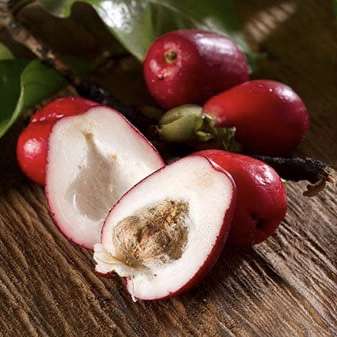
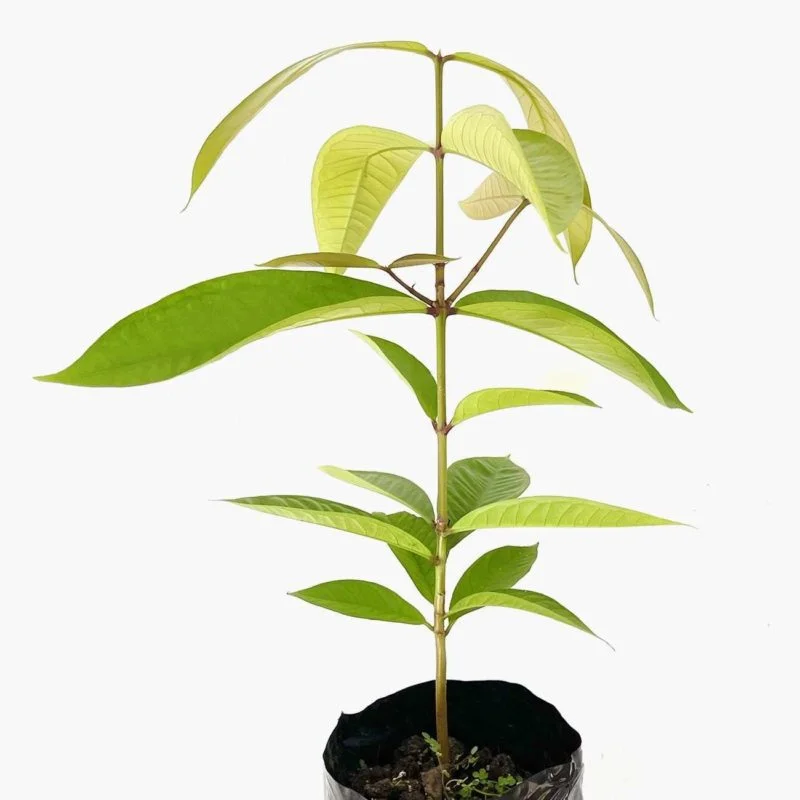
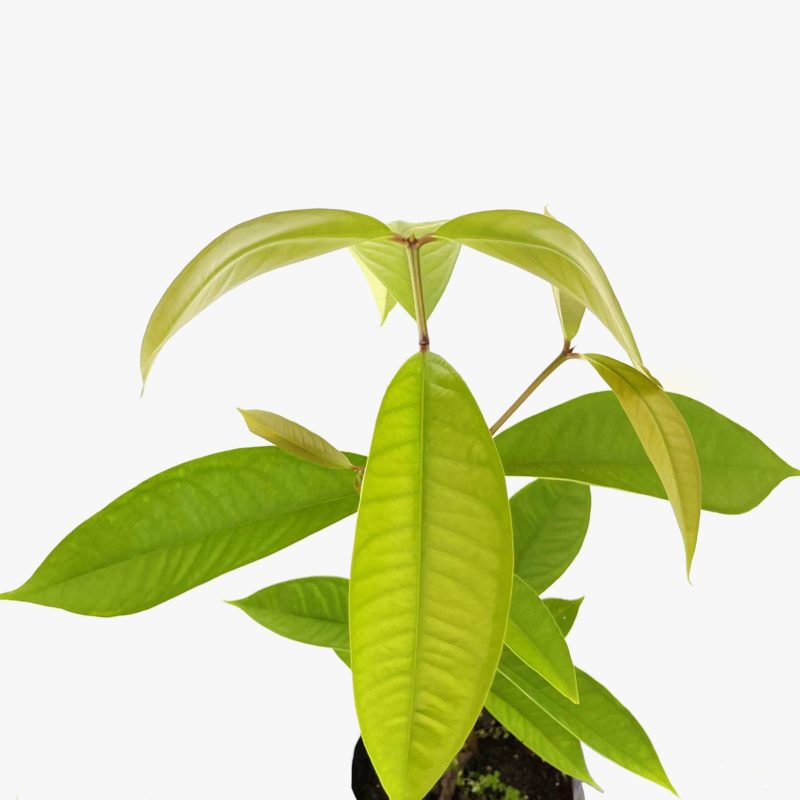
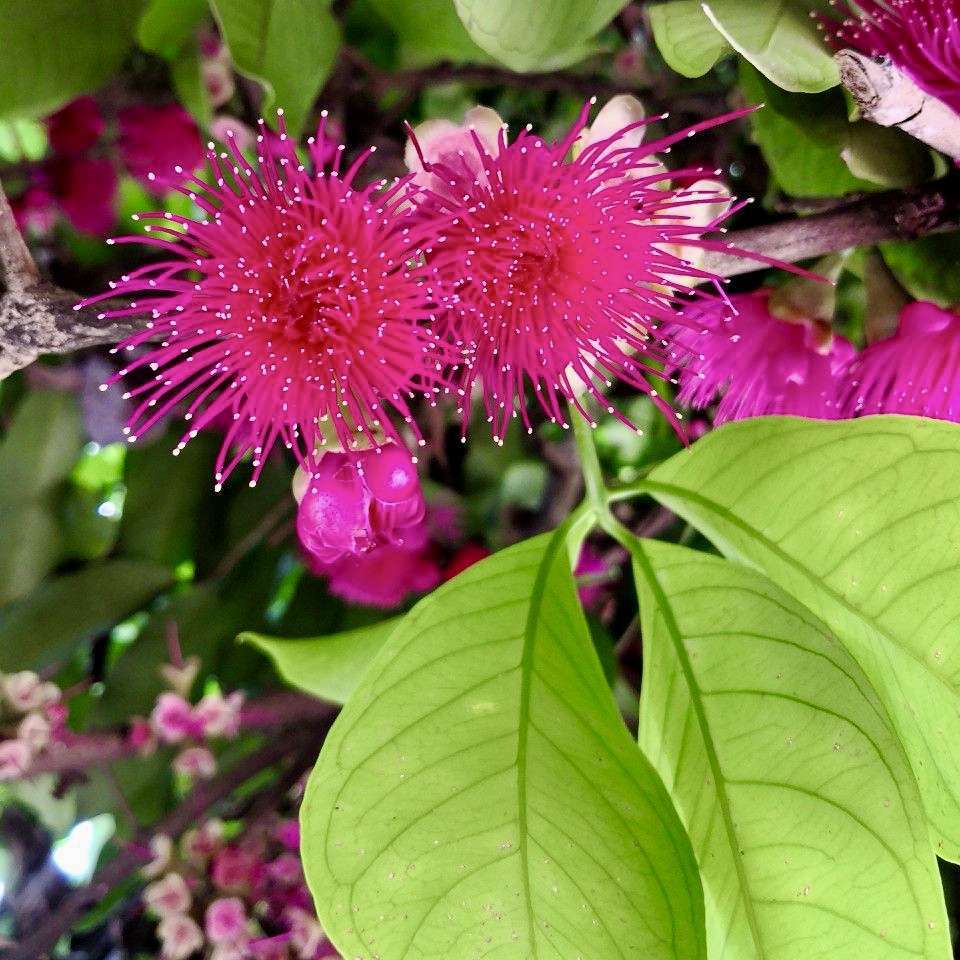
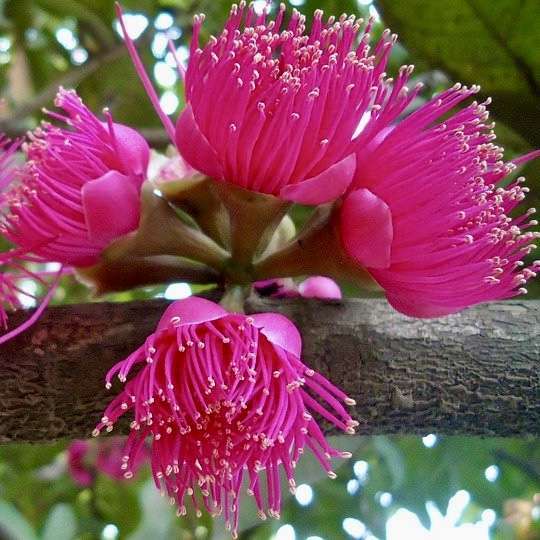
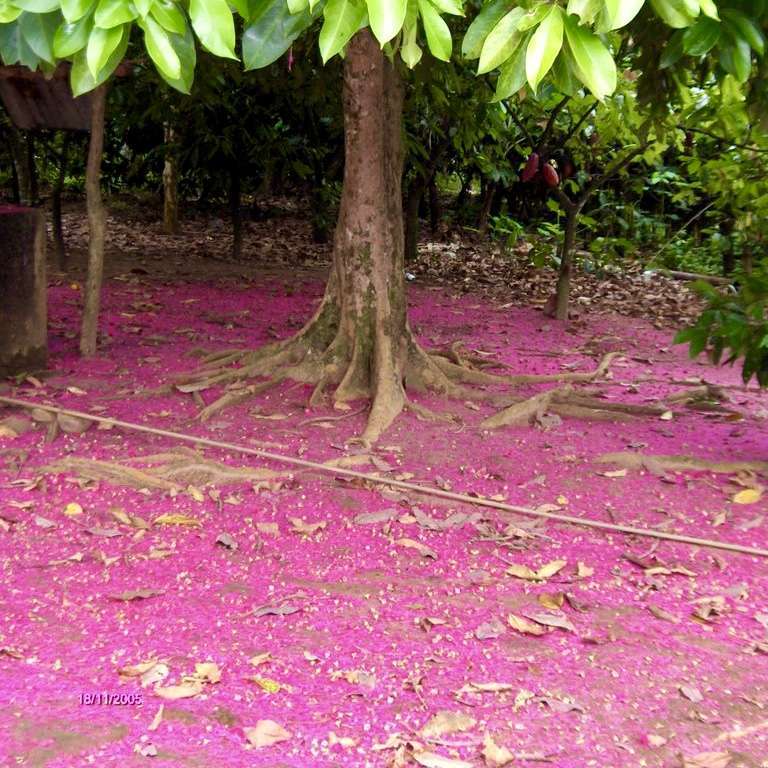
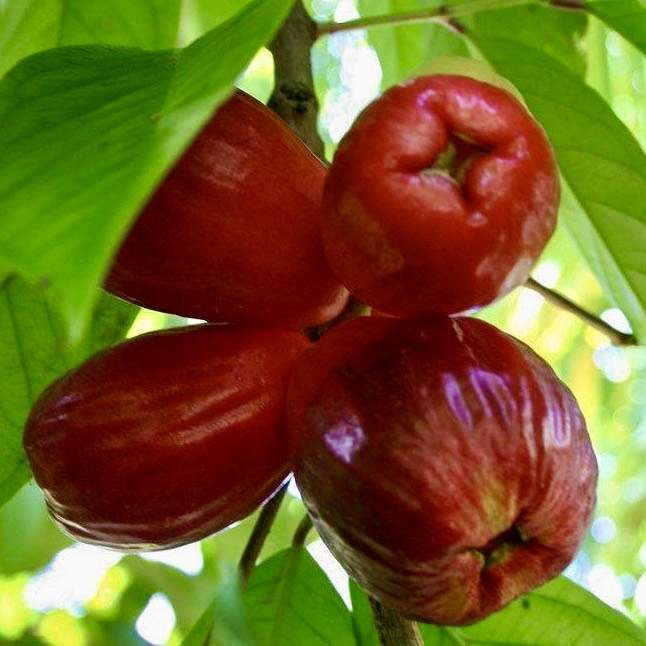
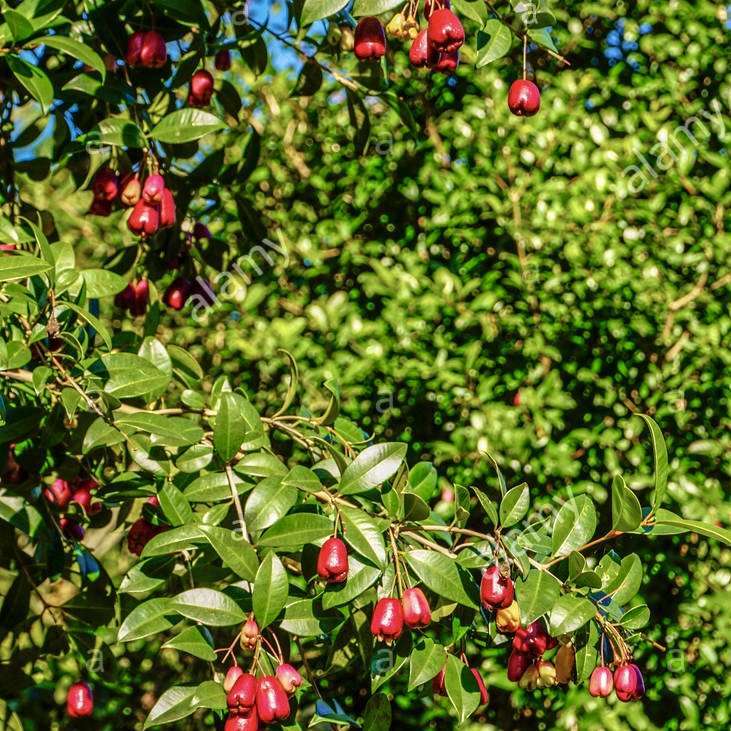


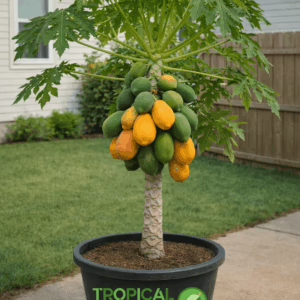





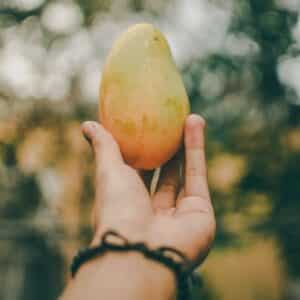






Reviews
There are no reviews yet.